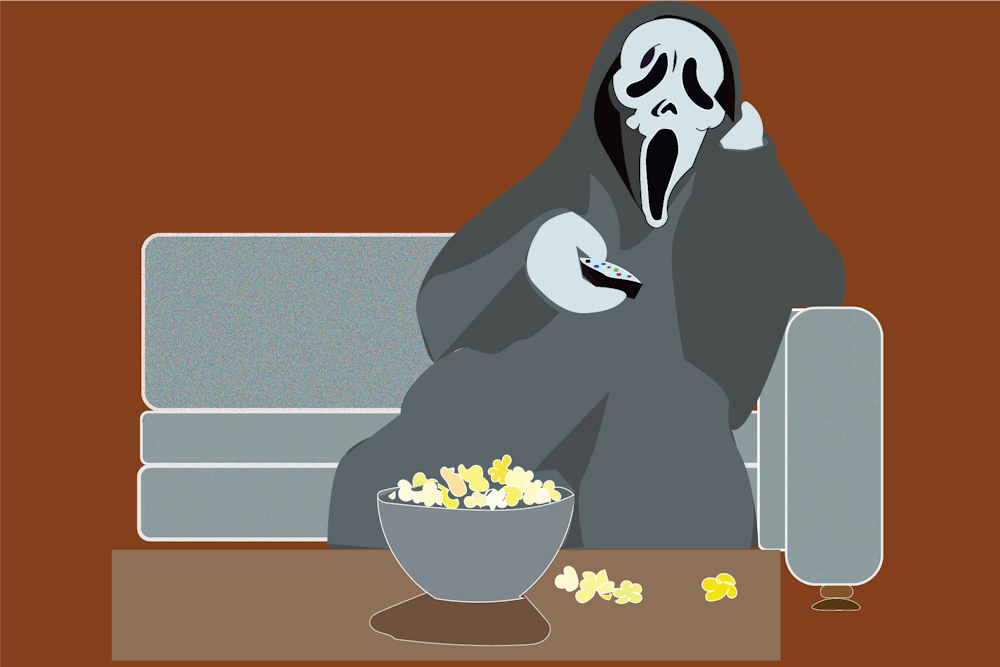There are bad movies, and then there are bad horror movies. Just when you're sure that you've hit rock bottom in terms of quality, the horror genre surprises you with plots that keep you waiting indefinitely for the punchline. Halloween is the time of year where you force yourself to attend the theaters to watch a horror film because 'tis the season.
Hollywood generates a quick buck this way, given people's willingness to go to a trashy horror movie just because it's spooky season. They don't seem to take the time on good acting, character development or even manufacturing actual fear.
Horror movies like these are the equivalent to Hallmark Christmas flicks that everyone knows are garbage, but they're put up with for the seasonal atmosphere they create that we're all desperate for — the industry takes advantage of this desperation.
We like scary movies because they invoke the terror that we are missing in modern life. In general, American students don't fear for their lives on a consistent basis; there isn't a surplus of dangerous beasts to run from or creepy dolls to dodge on UNC's campus. Horror films are there to fill that supposed void. They provide a surge of feelings that we normally never experience.
Although I struggle to understand this myself, it's clear that people chase adrenaline through their screens. The newest media that is coming out is often hyper-stimulating and emotion-provoking. However, this wild grab for the modern person's attention span results in the plummeting caliber of horror movies.
You would think that with the enormous improvement in special effects and CGI that horror productions would be more gripping than ever. But the film industry has used these advanced tools as a crutch for both action and horror. They saturate their movies with violent and gory scenes that assail the viewer's eyes for minutes on end.
Classic horror movies are widely considered much better than new ones. They are much slower. They build on chilling details gradually, until your whole body is responding to the eerie scenes flashing before you. Older movies like “The Shining” or “The Silence of the Lambs” rely on psychological twists rather than cheap scares. In a conversation with a friend who loves horror, they remarked that new horror movies are like fast food shoved down the consumer's throat with an urgency that doesn't allow for nuance.
It seems that the producers of these films don't trust their audience to understand and experience the emotions of true tension and fear. Elongated plots with twists and complexity are being thrown to the wayside to be replaced by generic storylines and reliance on cheap jumpscares. The industry knows that they can profit from the public's thirst for Halloween-esque movies, and so it gets away with churning out these subpar ones.
For example, the newest iteration of “The Exorcist: Believer” was fundamentally not scary. The most terrifying part of the movie was when a rock was lifted to expose a venomous snake. Not only was it not scary, but it was practically one big question mark. The audience waited for the scares, plot development and purpose all the way through the credits when they finally left the theater unsatisfied. This was reflected in the reviews: it got 22% on the Rotten Tomatoes scorer.




